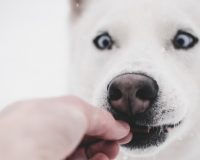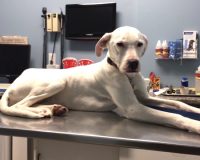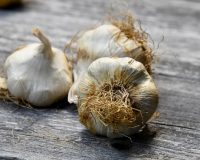If your pet has ingested a toxic substance:
• Remove your pet from the area
• Check to make sure your pet is safe: breathing and acting normally
• Do not give any home antidotes
• Do not induce vomiting without consulting a vet or Pet Poison Helpline
• Call the ASPCA’s Animal Poisoning Hotline at 1-888-426-4435 (fees may apply)
• If veterinary attention is necessary, contact your veterinarian or emergency veterinary clinic immediately.
Common, visible signs of poisoning include:
• Hyper-salivation (drooling)
• Vomiting
• Diarrhea
• Lethargy
• Hiding (cats)
• Tremors/convulsions
• Increased respiration/panting
• Sudden behavioural change
Toxic and Irritant Foods
Alcohol
Apple seeds
Apricot pits
Avocados
Birch Sugar, Birch Wood (also known as Xylitol)
Candy (particularly chocolate—which is toxic to dogs, cats, and ferrets—and any candy containing the toxic sweetener Xylitol, also known as Birch Sugar and Birch Wood)
Cherries, choke cherries, cherry pits
Chickpeas (not toxic but legumes are being linked to illness in some dogs)
Chives
Chocolate
Citrus
Coconut, Coconut Oil
Coffee (grounds, beans, and chocolate-covered espresso beans)
Corn (not toxic, but not digestible – useless food for dogs as nutrients are not absorbed)
Currants
Garlic
Grapes
Gum (can cause blockages and sugar free gums often contain the toxic sweetener Xylitol, also known as Birch Sugar and Birch Wood)
Hops (used in home beer brewing)
Macadamia nuts
Milk and dairy
Moldy foods
Mushroom plants
Mustard seeds
Nuts, including almonds, pecans, and walnuts
Onions, Leeks
Peach pits
Peas (not toxic, however peas increasingly linked to illness in some dogs)
Potato leaves and stems (green parts)
Raisins
Rhubarb leaves
Salt, salty snacks
Smoked bones/hocs (high in nitrates and carcinogens)
Sugar substitutes, including Xylitol (see below)
Tea (because it contains caffeine)
Tomato leaves and stems (green parts)
Xylitol, also known as Birch Sugar and Birch Wood (artificial sweetener is toxic to pets, found in a large variety of sweet products and processed peanut butters)
Yeast dough
Sources: ASPCA, American Humane Society, The Kennel Club















